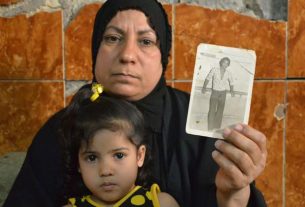The number fleeing violence in Sudan since fighting between rival militaries began in mid-April in Khartoum, quickly destabilizing the entire country, has now topped 100,000.
The majority of arrivals in eastern Chad – particularly Ouaddaï, Sila, and Wadi Fira provinces – are from the Darfur region, which has been deeply impacted by violence for decades, reminded UNHCR.
Thousands more on the move
“Reports from our teams on the border indicate that new waves of arrivals are still ongoing”, the agency said in a press release, estimating that up to 200,000 people may be forced to flee to eastern Chad in the coming three months.
UNHCR and its partners have been working closely with the Chadian government, providing support and coordinating the emergency response to address the needs of the newly arrived refugees.
Laura Lo Castro, UNHCR Representative in Chad, said humanitarians had “been working around the clock providing protection services, including specialized assistance to survivors of violence and children at risk, constructing boreholes and well, installing emergency latrines, running mobile clinics, organizing complex relocation convoys, scaling up camps capacity to accommodate newly arrived refugees in existing refugee camps, building family shelters and community infrastructures and we are starting to build new camps.”
The agency said the rainy season was fast approaching, requiring a massive logistical exercise to move refugees from border areas for their safety and protection.
Scrambling to build new camps
“We need to establish immediately new camps and extension of existing camps”, the agency said. “As host populations are gravely affected by the situation in Sudan, some assistance will need to be extended to the most vulnerable among the host population.”
UNHCR stressed that more funding was essential to provide lifesaving interventions.
Long-standing crisis
Prior to this crisis, Chad already hosted nearly 589,000 refugees, including 409,819 Sudanese fleeing conflict in Darfur, as of March 2023.
Nearly 128,000 refugees are in the country from the Central African Republic; 21,287 Nigerians escaping violence by Boko Haram, are present in the Lake region; 28,311 Cameroonians affected by inter-communal tensions, and 1,507 refugees from other nations.
Tens of thousands of refugees have arrived in Chad from Sudan.
Additionally, an estimated 381,289 Chadians are internally displaced, primarily in the Lake Chad Province.
Displaced communities continue to face insecurity in Chad and neighboring countries, compounded by food insecurity, malnutrition, the effects of climate change, and a lack of livelihood opportunities.
The protracted nature of displacement has strained services, natural resources, and social cohesion, said UNHCR.
‘Beacon of hope’
“For families uprooted by the crisis, the humanitarian assistance is their beacon of hope”, added Ms Lo Castro. We rely on the compassion and generosity of our partners to rally together to ensure the provision of critical protection and life-saving support. Together, we can save lives and restore dignity to those in desperate need”.
There is a need for $214.1 million urgently, to provide lifesaving protection and assistance to Chad’s forcibly displaced, which includes $72.4 million for the emergency response for refugees fleeing conflict in Sudan, reiterated UNHCR.



